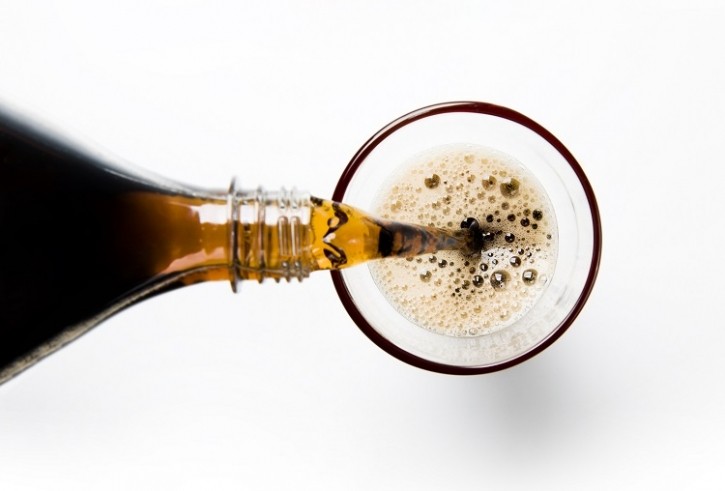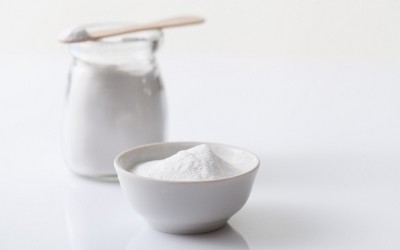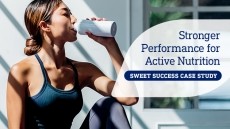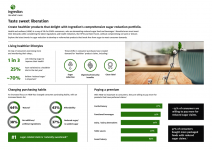WHO classes aspartame ‘possibly carcinogenic’ but safe to consume within daily intake guidelines

Aspartame is a popular non-nutritive sweetener used by many industries, including food and beverage. Being about 200 times sweeter than table sugar, the additive helps popular products such as Diet Coke, Fanta, and Mars Extra chewing gum reduce their sugar content.
The World Health Organization (WHO) has been working to assess the safety of aspartame consumption in two ways. Firstly, to determine whether the popular sweetener can cause potential harm to humans; and secondly to identify the risk attached to aspartame at levels of consumption observed in real life.
Today (14 July), the results are in. The International Agency for Research on Cancer (IARC) has classed aspartame ‘possibly carcinogenic’, while the Joint Expert Committee on Food Additives (JECFA) has found no convincing evidence that aspartame causes harm when consumed within existing daily intake guidelines.
Aspartame ‘possibly carcinogenic to humans’
The IARC’s aspartame classification (2B) is based on limited evidence for cancer in humans – specifically for hepatocellular carcinoma, a type of liver cancer.
The IARC assessed three epidemiological studies, comprising four large cohorts across the US and the EU, that examined the consumption of beverages sweetened with aspartame.
“All three studies were high quality, prospective cohort studies that controlled for many potential confounders,” explained Dr Mary Schubauer-Berigan of the IARC Monographs programme during a press briefing this week. Positive associations were observed between artificially sweetened beverages and liver cancers in all studies.
But despite these ‘consistent’ positive findings, the working group concluded that chance, bias, and confounding could not be ruled out. Thus, the IARC has concluded the evidence was limited.
The working group also concluded that there was limited evidence for cancer in experimental animals based on a set of studies in mice and rats, as well as limited mechanistic evidence that aspartame exhibits key characteristics of carcinogens (such as the induction of oxidative stress, chronic inflammation, or cell death).

Not all concur with the IARC’s findings. In the US, the Food and Drug Administration (FDA) has been public in its disagreement with the IARC’s conclusion that these studies support classifying aspartame as a possible carcinogen to humans.
“FDA scientists reviewed the scientific information included in IARC’s review in 2021 when it was first made available and identified significant shortcomings in the studies on which IARC relied,” noted an FDA official.
The International Sweeteners Association (ISA), which represents suppliers and users of low/no calorie sweeteners such as aspartame, stressed that IARC is not a food safety body. Since its ‘possibly carcinogenic’ 2B classification does not consider intake levels nor actual risk, an IARC review is ‘far less’ comprehensive than reviewed conducted by food safety bodies, noted the ISA.
“To put this in context, IARC’s 2B classification puts aspartame in the same category as kimchi and other pickled vegetables. IARC would be the first to say that they don’t suggest people should stop using kimchi at meals”
Aspartame safe when consumed within existing daily intake guidelines
The acceptable maximum intake of aspartame is 40mg per kilogram of body weight. For an average adult weighing 70kg, that translates to around 2,800mg of aspartame per day.
In sodas, aspartame content often sits within between 200-300mg per can. An average adult therefore would need to consume between 9-14 cans of soda to reach this upper limit. This is the amount of aspartame the WHO has today reaffirmed is safe for human consumption.
To come to this conclusion, JECFA considered the evidence on cancer risk in animal and human risk. Evidence suggesting an association between aspartame consumption and cancer risk is humans is ‘not convincing’, we were told.
Epidemiological studies in humans did find some type 2 diabetes and cancer effects, notably hepatocellular cancer, breast cancer, and lymphoma, but it’s possible other effects confounded the results, Dr Francesco Branca, director of the Department of Nutrition and Food Safety at WHO, explained.
The UN agency is calling for better studies with longer follow-up and repeated dietary questionnaires in existing cohorts. “We need randomized controlled trials, including studies of mechanistic pathways relevant to insulin regulation, metabolic syndrome and diabetes, particularly as related to carcinogenicity,” said Dr Moez Sanaa, WHO’s head of the Standards and Scientific Advice on Food and Nutrition unit.
JECFA’s findings mean industry should not expect any changes to acceptable maximum intake of aspartame, and therefore, product formulations.
WHO is ‘definitely’ not recommending that producers or authorities withdraw products from the market, stressed Dr Branca during the press briefing. While there have been some health concerns identified in studies, they have not been done so with sufficient consistency nor clarity to limit the existing daily intake guidelines, he explained.
So if safe to consume, can aspartame be used for weight control?
Earlier this year, the WHO released guidance recommending against the use of non-sugar sweeteners (such as aspartame) to control body weight or reduce the risk of non-communicable diseases.
The recommendation came after a systematic review of available evidence suggested the use of non-sugar sweeteners does not offer any long-term benefit in reducing body fat in adults or children. The review also suggests there may be potential undesirable effects from long-term use of non-sugar sweeteners, such as increased risk of type 2 diabetes, cardiovascular diseases, and mortality in adults.
This puts consumers looking to reduce body weight in a tricky spot. If faced with the decision to purchase and consume a cola containing sweeteners or a cola containing sugar, the right choice may not be obvious.
“I think there should be a third option considered, which is to drink water instead, and to limit the consumption of sweetened products altogether,” said Dr Branca. “This is particularly important for young children who will be exposed early enough to taste adjustment and then will basically be on the track of continuing to consume sweetened products.
“There are alternatives that do not contain either free sugars or sweeteners and they should be the products that are preferred by consumers.”
Consumer organisation Foodwatch agrees. “The sugar content in food and beverages should go down, but simply replacing sugar with sweeteners is not a solution. The WHO advises against sugar-free sweeteners to control your weight,” said international campaign lead Frank Lidner.
Industry takes another view. Commenting on JECFA’s review reaffirming aspartame’s safety, the Calorie Control Council – which represents the low-calorie food and beverage industry – said to assert otherwise would be ‘misleading, inaccurate, and fearmongering’ to the nearly 540m people globally living with diabetes and millions of others managing their body weight who rely on and/or choose products that contain low- and no-calorie sweeteners such as aspartame.
The ISA also believes that when used as part of a balanced diet, low/no calorie sweeteners like aspartame can be used to further public health objectives on sugar intake reduction and ultimately assist in weight and diabetes management.


























